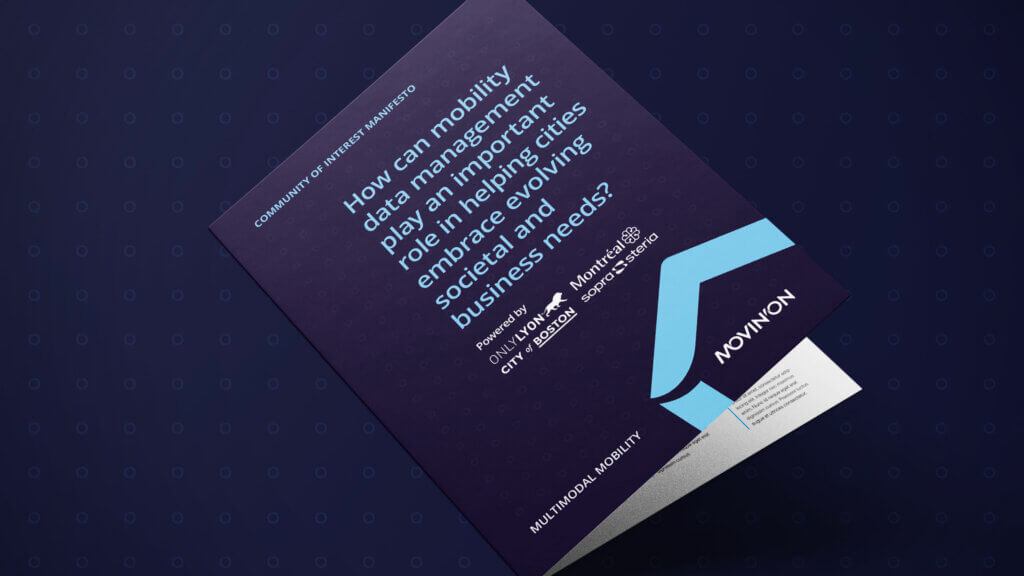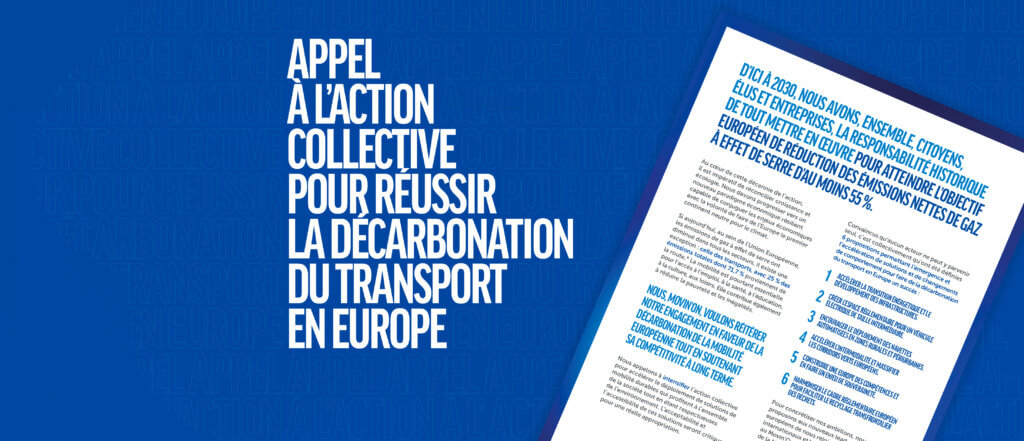Mobility data management, the key for cities to adapt

Chapter 1: Access to mobility data and governance
The city of Montreal has been involved in the summit from the outset, notably through the inclusion of high-level private, public, para-public and academic players on panels and at working sessions.
The city of Lyon has been a key player at the summit since 2018, initially with the issue of developing cooperation (presentation of the Kochi metro project with technical assistance from CODATU - an association for urban mobility in the developing world - and support from Sytral - the mobility operator for the metropolitan area of Lyon).
But it was in 2019 that the three entities - the cities of Montreal, Lyon and Boston - began working together within the framework of Movin'On, building on many years of decentralized cooperation. A working session was organized during the Movin'On 2019 summit on the social acceptability of autonomous vehicles, bringing together private players, public authorities such as ADEME, and well-known associations.
The cities of Boston, Montreal and Lyon are facing common challenges characterized by ever-changing mobility needs. As a result, a growing number of private and public transport options are emerging, involving new uses for public spaces (car-sharing, on-demand transport, self-service vehicles, electric scooters, etc.).
To plan service supply and adapt the urban environment, cities need a certain amount of data, which is often collected by the different transport operators. Obtaining and using this data in turn raise a series of questions, notably over data management and individual privacy.
In addition, a number of current critical issues, as diverse as climate change, data confidentiality and the impact of the Covid-19 pandemic, have emphasized the acute relevance of dealing with urban mobility data management and policy in a collaborative and ecosystemic way, to better understand the evolutions at work and new emerging needs, and to adapt public policies accordingly.
Cities are therefore wondering how best to encourage the sharing of mobility data, with the aim of always better serving the common good and adapting quickly to new needs as and when they arise. In this context, the Movin'On ecosystem has seen the emergence of a complex issue we need to accompany and support.
This topic involves a multitude of stakeholders who need to work together to produce actionable content in line with our editorial content aimed at ultimately improving sustainable multimodal mobility (one of our key topics, see below).
Promoting a shared vision: a manifesto
Given the shared concerns over mobility data (see below) and the history of decentralized cooperation between municipal bodies, the idea of an international collaboration was born to trigger an essential thought process around mobility data. All three cities - Boston, Montreal and the Lyon metropolitan area - consider data collection to be critical to transport planning, and mobility to be in the general interest, particularly of citizens, when it comes to sustainability.
As this information, sometimes of a sensitive nature, is often collected by different private and public players and operators, sharing it is not always as easy as we would like. To strengthen the ties between stakeholders and the framework for action, the three entities of Boston, Lyon and Montreal have set themselves the goal of drafting a Manifesto to define the major principles of action that should frame the sharing of mobility data for the common good.
Naturally, this Manifesto ties in with other related concerns, for instance for the City of Montreal with the activities of the Digital Data Charter and discussions on data governance as part of the Smart Cities Challenge. This manifesto will be presented at the next Movin'On summit, in June 2021. It will cover four main chapters with the ambition of remaining open and inspiring mobility ecosystems around the world:
- Data access and governance
- Ethics and fairness
- Private data
- Data standardization
Share
Tweets de @movinonconnect
Movin'On 2035 TODAY EP02 - Circular Economy & Competitivity
Movin’On 2035 TODAY EP01 – Fair Mobility for All https://x.com/i/broadcasts/1yNxagBrWZbGj
✨ THAT'S A WRAP!
Movin'On Summit 2024 has just concluded in Brussels!
More than 350 leaders and experts in sustainable mobility gathered to exchange ideas, collaborate, and share their vision for desirable and decarbonised mobility in Europe. Together, we explored ways to build…
🔴 Live from #MovinOnSummit2024
@AshaSumputh has just invited Denis Machuel, CEO at @AdeccoGroup and Florent Menegaux, President of the @Michelin Group & President of Movin'On
Sustainable mobility news
Discover the latest trends, analyses per theme, and our next meetings.





